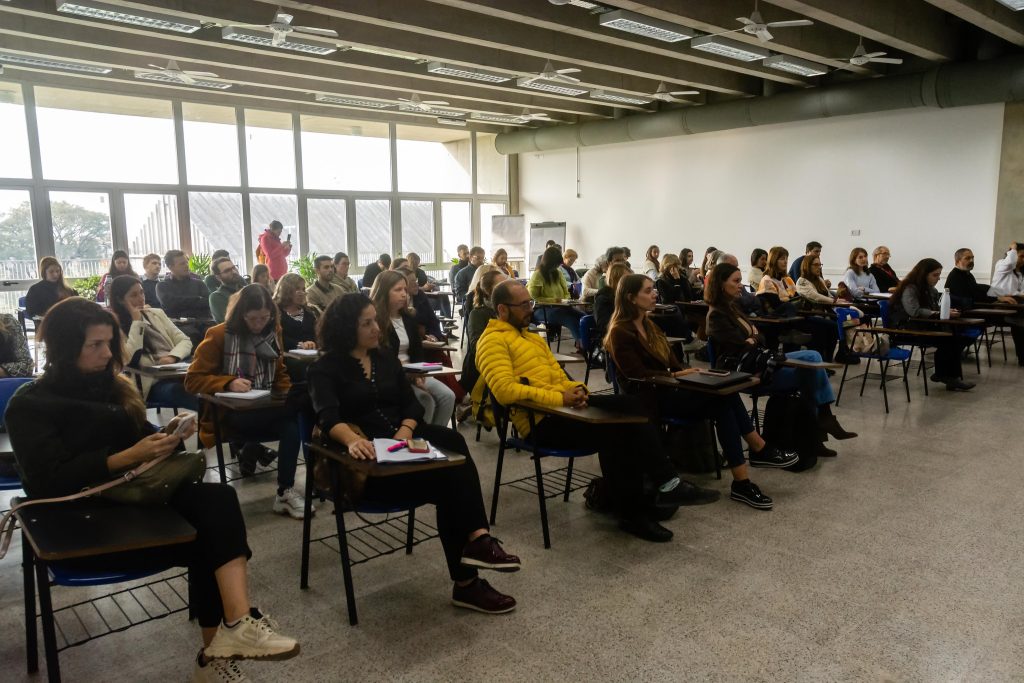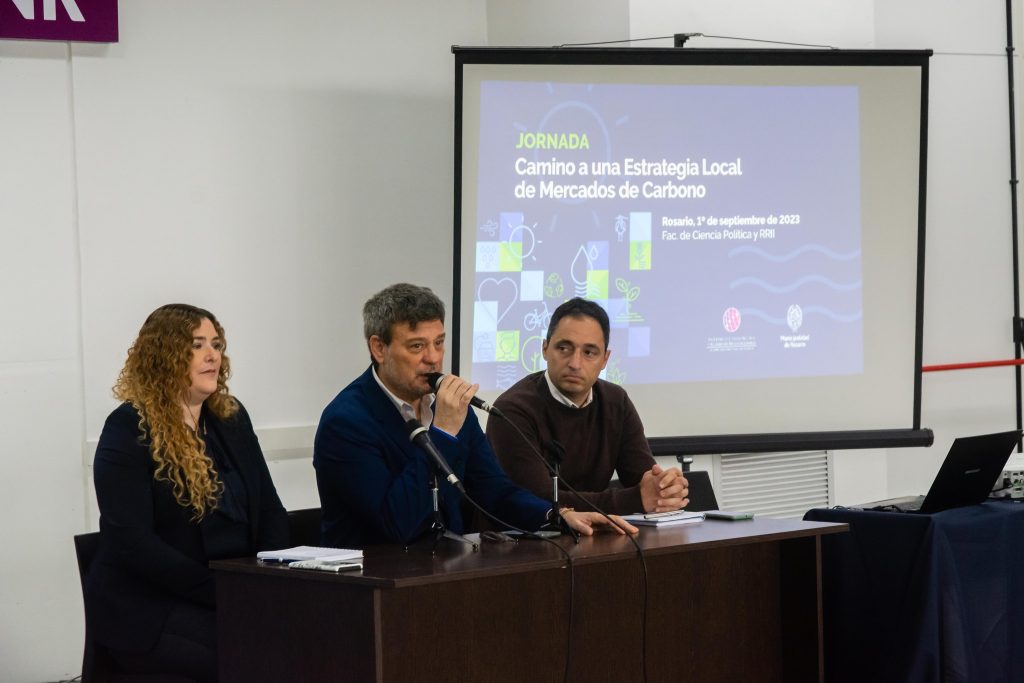ROSARIO
Background

The Local Climate Action Plan of the City of Rosario includes integrated instruments for the monitoring of the implementation progress and realization of mitigation and adaptation goals by 2030, based on annual greenhouse emission inventories and risk maps. Various entities compose a thorough local climate governance dynamic which has allowed to prioritize 62 actions, follows up and ensures the effective implementation of these actions.
As part of the set up process of the Local Climate Action Plan, the evidence from its Monitoring System, of public access, allows for the identification of progress in the implementation and the gaps for its acceleration. The city of Rosario develops the Local4Action HUB based on its experience identifying the advacement of its local climate actions and the convergence with national and global climate agendas. This case works as a demonstrative example of participatory follow-up and monitoring of the fullfilment of goals.

The HUB
The Local4Action HUB Rosario is a place for exchange on a global level to share tools, ideas and experience for the reinforcement of local climate policy. The City of Rosario brings its experience on responding to climate change impact and challenges from the Global South, offering an example and guidelines for replicability in other territories. Monitoring, review and evaluation of the local climate policy, considering the participatory element and highlighting the links between locally implemented measures and national and global climate agendas.
Local and regional level synergies are to be fostered as part of the Local4Action HUB to formulate and develop conceptual and methodological tools. These should allow local governments to mobilize a good for public use that will improve their capacities to access financing for local climate action Following the identification of strategic actors, the establishment of high-impact and targeted alliances with them will be worked on, in order to facilitate the financing of local climate action.
Expected outcomes
- Promote exchange and learning among peer cities at regional and global level, supported by academia, the private sector and civil society, to learn about opportunities of local climate financing, as well as the legal and financial environment and instruments to better access such financing.
- Develop learning tools to strengthen the technical capacity of local governments and their administrations in relation to accessing and mobilizing financing for climate action and sustainable development.
- Encourage learning on climate financing through the demonstrative example for a local experience “Local Climate Finance Table”.
- Promote learning and knowledge-sharing on local financing strategies based on the lessons taken from the Local4Action HUB process to encourage replication at regional and global levels.
Local-to-Global
Agendas
Due to the multilevel nature of climate action and the importance of local level efforts to realize global goals, the climate policy of the City of Rosario and its monitoring system clearly reveal a global-local relation. Each of the policies of the climate action plan is related and contributes to implementing global agreements or climate policies. By promoting access to financing and identifying innovation pathways for urban climate financing, local capacity to contribute to global agendas will be strengthened. In this way, the local community can also better visualize the links between their local realities and global ambitions, as well as the underlying need for mutual cooperation and efforts.
Link to Agenda 2030
- SDG 11 – Make cities and human settlements inclusive, safe, resilient and sustainable
- SDG 13 – Take urgent action to combat climate change and its impacts (acknowledging that the United Nations Framework Convention on Climate Change is the primary international, intergovernmental forum for negotiating the global response to climate change)
- SDG 17 – Strengthen the means of implementation and revitalize the Global Partnership for Sustainable Development
Link to the UCLG Pact for the Future of Humanity
- Commitments for People
- C3 – Promote informed and sustained citizen’s participation in public life and decision-making promoting freedom of speech and conscience and artistic expression.
- C8 – Contribute to citizens’ living in safe, peaceful and violence-free environments, including in domestic settings.
- C9 – Foster open, accessible and verifiable information and data to promote inclusion, education and communication.
- C10 – Respect for planetary health and the well-being of future generations.
- Commitments for Planet
- C2 – Reflect the real and full costs of production in goods and services, and not externalise their costs and/or effects.
- C3 – Foster local economic development policies that foster new indicators based on quality of life and well-being rather than on growth and economic performance and connect systems of cities with their surrounding hinterlands.
- C4 – Empower local communities to play a central role in protecting biodiversity, water, the environment and the planet and recreate local employment, optimise resources, to increase quality of life and protect the environment.
- C10 – Identify mechanisms to redress the historically uneven distribution of environmental benefits and burdens and co-create resilience systems
- Commitments for Government
- C1 – Promote inclusive, participatory, responsible and accountable multilevel governance leading to global action.
- C3 – Protect and promote all public institutions, ensure the integrity of the justice system, and ensure equal access for all citizens.
- C4 – Strengthen public institutions to enhance the protection of our global commons and provision of public goods.
- C5 – Involve the scientific-community, civil society and local communities in the process of policy and decision making.
- C8 – Strengthen local finance and rethink fiscal architecture to ensure secure revenue streams for improved planning and investment at the local level.
Link to other Global Agendas
- UN Common Agenda
- Sendai Framework (specifically Goal 19)
- Escazú Agreement (specifically Articles 6.1 and 6.3)
Activities
- Workshop seminar and virtual webinars to identify, collect and exchange about good practices that can serve to strengthen local capacities to access finance for local climate action
- Mapping process of the strategic actors in the local, national and international ecosystem that can provide or support access to climate financing
- Providing a capacity training course for the consolidation of local technical abilities and knowledge related to climate financing
- Setting up a repository of pedagogical and learning content stemming from the training course for wider outreach and dissemination
- Carrying the demonstrative project of the “Local Climate Finance Table” in the City of Rosario
- International Conference to share the conceptual and methodological process led by the Local4Action HUB and its main findings and conclusions of the demonstrative case of the “Local Climate Finance Table”.
Resources
- Monitoring System of the Local Climate Action Plan of the City of Rosario
How to join the Local4Action HUB
For further information please contact:
- City of Rosario, International Relations Department – internacionales@rosario.gov.ar
- Local4Action HUBs Program – local4actionhubs@uclg.org